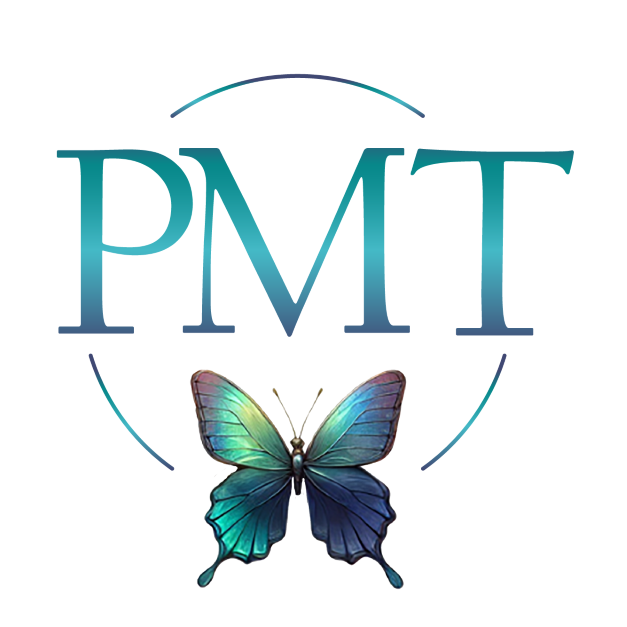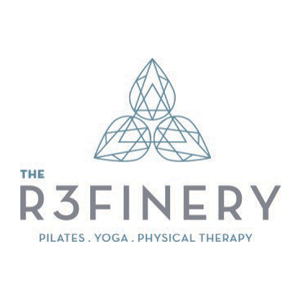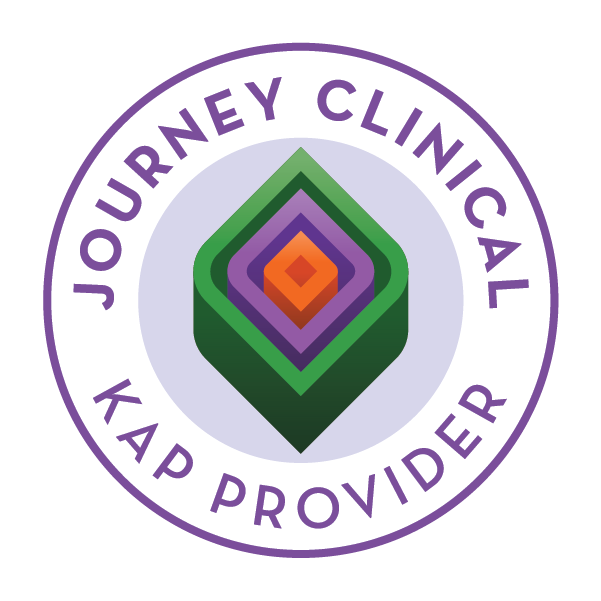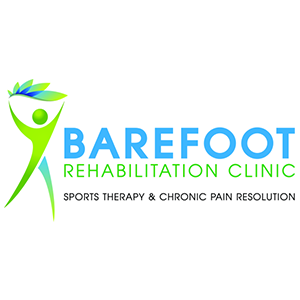Counseling From a Therapist in Summit, NJ
Licensed Clinicians
Free Initial Consultations
Same-Day Appointments
Hours:
Mental Health Clinicians in Scotch Plains and Summit, NJ
Presence of Mind Therapy is a women owned business established in 2017 to provide Scotch Plains, Summit, and surrounding areas a place of healing and community. Our clinicians are grounded in clinical theory and alternative modes of healing and believe the client is the expert in their own lives. We offer the framework for your healing as you identify day-to-day stressors, longer standing patterns, generational dysfunction, and the somatic manifestation of emotional wounding. We teach coping skills, reframing of larger issues and themes, as well as techniques to regulate your entire system.
Our work is to assist you in evolving to your highest most authentic level of functioning where you can cultivate a life you desire. Below, you’ll find more information on areas we treat. Call today to schedule your initial appointment; same-day appointments are available.
“Courage doesn’t happen when you have all the answers. It happens when you are ready to face the questions you have been avoiding your whole life.”
― Shannon L. Alder
We Offer One Initial No-Cost Consultation
For New Clients
To Request an Appointment Please Call:
(908) 663-2441
Maureen’s office was very nice and welcoming. She made me feel comfortable as a first-timer. Would recommend to others.
- Julian J. via Google
Mental Health Clinicians in Scotch Plains and Summit, NJ
Presence of Mind Therapy is a women-owned business established in 2017 to provide Scotch Plains, Summit, and surrounding areas a place of healing and community. Our clinicians are grounded in clinical theory and alternative modes of healing and believe the client is the expert in their own lives. We offer the framework for your healing as you identify day-to-day stressors, longer-standing patterns, generational dysfunction, and the somatic manifestation of emotional wounding. We teach coping skills, reframing of larger issues and themes, as well as techniques to regulate your entire system.
Our work is to assist you in evolving to your highest most authentic level of functioning where you can cultivate the life you desire. Below, you'll find more information on areas we treat. Call today to schedule your initial appointment with a therapist in Summit, NJ; same-day appointments are available.
“Courage doesn’t happen when you have all the answers. It happens when you are ready to face the questions you have been avoiding your whole life.”
― Shannon L. Alder
We Offer One Initial No-Cost Consultation
For New Clients
To Request an Appointment Please Call:
(908) 663-2441
Maureen’s office was very nice and welcoming. She made me feel comfortable as a first-timer. Would recommend to others.
- Julian J. via Google
Challenges Occur at Every Life Stage
One of the key insights of therapy is the realization that seeking help is not a sign of weakness, but rather an act of courage and self-care. It takes strength to acknowledge that we may need support and to take proactive steps towards our own well-being. Therapy provides an opportunity to work through personal issues, heal emotional wounds, and develop a greater sense of self-acceptance and self-compassion. We talk about real world issues in our practice. Nothing is off the table with our clinicians. We are here to help you be your best self, whatever that self looks like.
Challenges Occur at Every Life Stage
One of the key insights of working with a therapist in Summit, NJ is the realization that seeking help is not a sign of weakness, but rather an act of courage and self-care. It takes strength to acknowledge that we may need support and to take proactive steps towards our own well-being. Therapy provides an opportunity to work through personal issues, heal emotional wounds, and develop a greater sense of self-acceptance and self-compassion. We talk about real-world issues in our practice. Nothing is off the table with our clinicians. We are here to help you be your best self, whatever that self looks like.
-
Aging
In today’s competitive and fast-paced social climate, the pressure to remain youthful and relevant permeates gender, race, and class. Age bias within the workplace, coupled with the fear of becoming obsolete, works to propel the message that age equals antiquation as opposed to wisdom. How do we push back against this myopic yet influential social norm, to carve out a path where aging means redefining our capability and value?
During our work together, we will explore opportunities to embrace older adulthood with grace. This journey may include developing a spiritual connection and practice or redefining your self-concept. Research on aging and spirituality has shown that individuals who have a sense of spirituality tend to live longer and experience enhanced well-being. Carl Rogers theorized that our self-concept is dynamic and malleable. Gene Cohen theorized that over a lifetime we accrue developmental intelligence, which he considered to be the greatest benefit of the aging mind. According to Eric Erikson’s stage theory on psychosocial development, aging is considered part of human development, and it is the final psychosocial conflict to resolve prior to death. The point is, there is always time and space to evolve.
Some common issues related to aging that we have had success in treating include, loss of friends and loved ones, isolation, depression, change in ability or functioning, medical issues, caregiver burnout, memory loss, and facing mortality. Staying connected, engaging in self-care, and staying active are recommended supplements to the work we will do in individual therapy.
We have specialized experience in helping individuals and families navigate dementia. Understanding the illness, working through denial, making accommodations in the home, exploring assisted living or skilled nursing care, and coordinating medical information, are within my realm of knowledge and experience. In-home sessions paired with care management services are recommended for families struggling to manage dementia.
-
Anger
Despite the guilt and shame many experience as a result of anger, it is a normal part of the human emotional experience. Theorized as a secondary emotion, often experiences like embarrassment, shame, feeling abandoned or rejected, and emotional wounding, can ultimately result in the expression of anger. Through a Family Systems lens, we understand anger as a conditioned response to managing stress, frustration, and pain, learned through the family of origin. Anger can become problematic when behavioral control is lost, which can then impact relationships and potentially create legal issues. In these cases, the treatment of anger management is necessary.
In our work together, you will come to understand the physiological and emotional interconnectedness of anger. You will learn to identify triggers by exploring the “who, what, when, where, and why” of anger. Identifying historical and subconscious threads that contribute to intense emotional expressions such as anger, can be helpful as we identify distorted thinking and maladaptive responses to emotional dysregulation. We will utilize strategies in Dialectical Behavioral Therapy such as mindfulness, distress tolerance, and emotional regulation, as you begin to alter your reactions to anger-provoking situations. Additionally, we will work to address potentially distorted or negative thinking by applying techniques in Cognitive Behavioral Therapy. Additional goals for treatment may include improving communication, setting boundaries, expressing needs, and improving self-confidence.
-
Anxiety
Experienced as an emotion, anxiety is our body’s natural response to stress accompanied by feelings of tension, worried thoughts, and physiological changes. The function of anxiety is to help motivate, however, when worry and stress begin to affect one’s ability to function, treatment is recommended.
In our work together, you will learn about the physiological response to anxiety, how to identify triggers and cues, how to regulate your emotional experience, and a deeper look at underlying contributors. We will cultivate an attitude free of judgment and full of compassion, as we address longstanding beliefs that may be weighing you down. Exercises in Cognitive Behavioral Therapy will aid in this exploration and provide a framework to utilize between sessions. Developing coping skills such as relaxation strategies, healthy self-care routines, journaling, hobby development, and yoga can be discussed as a supplement to individual sessions. We will also have the option to explore exercises in conscious breathing, guided meditation, and spiritual practice as we develop our understanding of how to disempower anxiety and elevate confidence.
For a deeper look, an examination of underlying fears, patterns of avoidance, relationship dysfunction, and defense mechanisms can be part of your journey toward reducing anxiety and improving your self-concept. As you become more comfortable trusting your intuition and reframing your thinking, you will become equipped to move through your emotions versus avoiding and numbing. In some cases, deeper fears may exist as the result of trauma, or childhood wounding. In these instances, inner child work can be done to release behaviors and thought patterns that are no longer serving you, and to replace them with alternative practices that more efficiently meet your authentic adult needs. As always, our anxiety therapist Summit, NJ trusts will navigate your path in treatment, at a depth and speed with which you are comfortable.
-
Depression
Living with depression in Scotch Plains, NJ can negatively affect how you feel, the way you think, and how you behave. Depression occurs for many different reasons and manifests differently for everyone. Therefore, when someone presents with symptoms related to depression, a thorough assessment, including social history, current stressors, and personal goals for treatment is important. Whether you are overwhelmed and would benefit from prioritization and problem-solving, struggle with interpersonal relationships, have developed unhealthy coping skills and thought patterns, have experienced loss and trauma, or are simply dissatisfied with your life and yearn to understand why, there is work to be done. Thank you for being here and taking action toward creating your new reality. Together we will develop a plan that will allow you to live the life you desire.
Dependent upon your specific presenting issue and goals for personal growth, I will pull from the theory of Jung, Psychodynamics, Family Systems, and Developmental and Cognitive Behavioral Therapy.
Developing coping skills such as relaxation strategies, healthy self-care routines, journaling, hobby development, and yoga can be discussed as a supplement to individual sessions. We will also have the option to explore exercises in conscious breathing, guided meditation, and spiritual practice as we develop your confidence.
For a deeper look, an examination of underlying fears, patterns of avoidance, relationship dysfunction, and defense mechanisms can be part of your journey toward improving your self-concept. As you become more comfortable trusting your intuition and reframing your thinking, you will become equipped to move through your emotions versus avoiding and numbing. In some cases, deeper fears may exist as the result of trauma, or childhood wounding. In these instances, inner child work can be done to release behaviors and thought patterns that are no longer serving you, and to replace them with alternative practices that more efficiently meet your authentic adult needs. As always, we will navigate your path in treatment, at a depth and speed with which you are comfortable.
-
Grief and Loss
Loss can occur following, death, divorce, a move, retirement, change in relationship status, altered ability, disruption to routines, a lifestyle shift, career change, loss of a pet, and so on. Developing strategies in self-care, coping, acceptance, and meaning-making, are some of the tools that we will explore together.
While there is no “right way to grieve”, there are several models that can facilitate healing. In 1969 Kubler Ross offered up ‘The Stages of Grief’ model where Denial, Anger, Bargaining, Depression, and Acceptance were believed to be experienced by the griever linearly. Since then, much has changed in terms of how we as a culture manage grief. Fortunately, newer models have emerged that offer frameworks to support the bereaved. Current popular models of grief include the ‘Dual Process Model’, ‘Worden’s Tasks of Mourning’, and ‘Tonkin’s Growing Around Grief’. In our work together, you will have a safe space to explore your particular process of grief, including cultural implications, myths, and spirituality. You will have the opportunity to gain clarity on what loss means to you, how to manage the day-to-day, and how to plan for a future of meaning. It is my personal belief that we must face our darkest fears, to move through them. In these spaces, breath, meditation, and prayer, can be helpful as we make space for and honor our losses.
-
Group Therapy
Wellness group counseling is offered in conjunction with individual work or as a stand-alone service. Following an initial assessment, you will be recommended for 1:1, group, or a combination of the two. One of the most cathartic aspects of group therapy is the experience of validation amongst peers. Please inquire about availability as slots can fluctuate based on need.
-
Hoarding
It is estimated that compulsive hoarding affects 1.5 percent of the population in the United States. While hoarding can be a symptom of Obsessive Compulsive Disorder (OCD), many who have Hoarding Disorder do not have other symptoms of OCD. Hoarding Disorder is defined as:
- Persistent difficulty discarding or parting with possessions, regardless of their actual value.
- This difficulty is due to a perceived need to save the items and to distress associated with discarding them.
- The difficulty of discarding possessions results in the accumulation of possessions that congest and clutter active living areas and substantially compromise their intended use. If living areas are uncluttered, it is only because of the interventions of third parties (e.g., family members, cleaners, authorities).
- The hoarding causes clinically significant distress or impairment in social, occupational, or other important areas of functioning (including maintaining a safe environment for self and others).
- The hoarding is not attributable to another medical condition (e.g., brain injury, cerebrovascular disease, Prader-Willi syndrome).
- The hoarding is not better explained by the symptoms of another mental disorder (e.g., obsessions in obsessive-compulsive disorder, decreased energy in major depressive disorder, delusions in schizophrenia or another psychotic disorder, cognitive deficits in major neurocognitive disorder, restricted interests in autism spectrum disorder).
Items like excessive acquisition and acquisition of animals also fall within this category of mental illness. In the early stages of treatment, we will meet in-office to build trust, understand the emotional significance of your possessions, the functionality of the hoarding behavior, and a plan for future goals. Should a purge and reorganization of your space feel right, we would work towards transitioning to in-home sessions.
-
In-Home Services
Typically paired with care management services, in-home services are an excellent option for those who have difficulty getting around or need assistance with a home organization related to an underlying condition. In-home sessions are determined on a case-by-case basis and must meet criteria such as dementia, OCD, hoarding, or a disability. Please inquire during our initial conversation.
Care Management
A great service for older adults who need assistance in making sense of the overall medical picture. This service includes accompaniment to medical appointments (transportation optional), coordination of care, communication between providers, managing the schedule of appointments, exploration of and transitions to an assisted living community and facilitation of family meetings.
-
Obsessive-Compulsive Disorder
Obsessive-compulsive disorder (OCD) is a mental illness that causes repeated unwanted thoughts and sensations (obsessions) or the urge to do something repeatedly (compulsions). Some can have both obsessions and compulsions. While everyone can experience unwanted thoughts and urges at times, individuals with OCD feel powerless to stop and have a decreased ability to function. Other criteria include behaviors or thoughts that take up at least an hour a day, the recognition that thoughts and behaviors are excessing with little control over stopping, may experience brief relief when performing behaviors or rituals however do not find the activities pleasurable, and that these behaviors and/or thoughts interfere with work, social life, or other aspects of functioning.
OCD comes in many forms, but most cases fall into at least one of four general categories:
- Checking, such as locks, alarm systems, ovens, or light switches, or think you have a medical condition.
- Contamination is a fear of things that might be dirty or a compulsion to clean.
- Symmetry and order are the need to have things lined up in a certain way.
- Ruminations and intrusive thoughts, an obsession with a line of thought.
Some common treatment options for OCD include Cognitive Behavioral Therapy and antidepressants. In my work, I have found success in utilizing the Exposure, Response, Prevention (ExRP) method. Essentially, we will work side-by-side towards gradual and systematic exposure to thoughts, images, objects, and situations that elicit obsessions and urges to act. From there we will strengthen your ability to resist the urge to engage in compulsive behavior. Changes are achieved by supported completion of in-session and at-home assignments, self-compassion, and trust in yourself and the process. Additionally, we will build upon your strengths, explore spiritual practice, and grow your relaxation exercise repertoire.
-
Office Visits
If you prefer the classic psychotherapy approach, you are welcome to join me at my office. Here you will check in with the receptionist, and head up a flight of stairs, for our hour-long session.
-
Panic Attacks
A panic attack is characterized by four or more of the following symptoms:
- Palpitations, pounding heart, or accelerated heart rate
- Sweating
- Trembling or shaking
- Sensations of shortness of breath or smothering
- Chest pain or discomfort
- Nausea or abdominal distress
- Feeling dizzy, unsteady, lightheaded, or faint
- Fear of losing control or going crazy
- Fear of dying
- Numbness or Tingling sensations
- Chills or hot flushes
An initial panic experience is extremely aversive and can quickly create hypervigilance around a future occurrence. As soon as one detects a similar experience coming on, the sympathetic nervous system becomes activated, which creates more acute awareness, more sympathetic system activation, and so on. Similar to that anxiety treatment, we will address panic through psychoeducation around physiological responses, identification of triggers, development of coping skills and relaxation techniques, and the correction of maladaptive thought patterns through exercises in Cognitive Behavioral Therapy.
-
Relationship Distress
Interpersonal relationships can be both extremely fulfilling and a source of stress and disappointment. Establishing healthy and meaningful relationships can be challenging given a variety of contributing factors. Individual personality type, attachment style, life experience, and family history, all play a role in how we connect and love. Further, because dysfunction and trauma tend to trickle down through generations, we must consider the person within the larger family system. As we work to understand your specific functioning in relationships in the context of family history, we will also have the option to explore on a deeper spiritual and ancestral level. Examining specific cultural, spiritual, and religious aspects, as well as archetypal projections may provide perspectives that empower you to end cycles of destructive behavior and create more meaningful relationships.
Additionally, gaining clarity on our own emotional needs, emotional needs that may not have been met as a child, how to parent ourselves, learning healthier tools for communication, setting boundaries, and remaining emotionally safe, are all important in the work we will do around improving relationships.
-
Screen-Time Dependency
Screen-time dependency is a growing issue, particularly among adolescents and emerging adults. The treatment of screen-time dependency is similar to that of other addictive behaviors. We will work together to understand screen-time dependency in the larger context of your life. Factors such as genetic predisposition to addiction, family history, life experiences, mental illness, avoidance patterns, social anxiety, and level of self-worth, will be addressed in order to understand and treat symptoms of dependency. In our work together you will identify triggers and patterns of avoidance, develop coping skills and routines of self-care like meditation, build self-confidence, and prepare for the future. Additionally, we will encourage you to find a supportive network and tap into spirituality as we navigate stepping out of patterns that no longer serve you and into a more passionate and authentic version of yourself.
-
Stress Management
If you are feeling overwhelmed by the pressures of daily life, you are not alone. Some common issues we have seen, in my work helping others include; managing work-life balance, feeling overwhelmed during times of transition (i.e. moving, divorce, going to college, career change, getting married, starting a family, etc.), fears about the future, making a “wrong decision”, falling short of expectations, comparison to peers, and socially rejected. Whether you can identify with some or many of these, there is room to evolve. The development of coping skills, building upon strengths, exercises in Cognitive Behavioral Therapy, problem-solving, social skill building, gratitude journaling, and the development of a daily meditation practice are among the items you will find in your toolbox throughout our work together.
-
Substance Dependence
From a Systems Theory perspective, it would be impossible to consider the substance dependent individual separate from their environment. Factors like genetic predisposition, family history, life experience, and mental illness all have the potential to play a part in the forming of a habit. Addressing underlying issues related to anxiety, depression, self-worth, interpersonal conflict, grief, loss, and trauma, must be addressed in order to understand and treat the symptom of substance abuse. Of additional importance are identifying triggers, monitoring changes in mood, developing coping skills and self-care, improving interpersonal connections, and creating goals to maintain sobriety. Additionally, we will encourage you to find a supportive network and tap into spirituality as we navigate stepping out of patterns that no longer serve you and into a more passionate and authentic version of yourself.
-
Supervision
Supervision is available to licensed social workers looking to obtain their clinical practice hours. We primarily call upon Developmental Theory, Psychodynamic Theory, Jungian Theory, Systems Theory, and Cognitive Behavioral Therapy to inform my practice and treatment of clients.
-
Telehealth
We offer HIPAA-compliant video conferencing on an ongoing, and as-needed basis. This option allows you to connect from a setting that feels most comfortable and at a time that more easily fits into your busy schedule. Given the uncertainty of our current world in response to COVID-19, telehealth is currently the recommended option for service. Sessions are one hour in length.
-
Trauma
Emotional trauma is a response to a harmful event such as abuse, a car accident, rape, witnessing a violent incident, or experiencing a natural disaster. Immediately following the incident, shock, and denial are typical and may subside. However, longer-term reactions may exist and include unpredictable emotions, flashbacks, strained relationships, and physical symptoms such as headaches, bodily pains, and nausea. These symptoms, sometimes subconsciously repressed, may persist for long periods of time. For some people, the emotional impact of trauma can make it difficult to function socially or at work and prevent one from finding peace in the day-to-day. In our work together, we will spend time building trust and creating a safe space to process painful experiences. Psychoeducation will assist in your understanding of trauma and its effect on the body, including the sympathetic and parasympathetic nervous system. You will develop skills and draw upon strengths as you learn to regulate and tolerate overwhelming emotions, clarify historical events, and create new meaning. Breath and meditation will be utilized to facilitate your journey of healing. Should you desire, we will explore spirituality as an object of empowerment. Much like grief and loss, there is no right way to heal from deep emotional wounding. The most important piece in trauma work with clients, is maintaining your emotional safety, which we regard with the utmost honor and respect.
-
Aging
In today’s competitive and fast-paced social climate, the pressure to remain youthful and relevant permeates gender, race, and class. Age bias within the workplace, coupled with the fear of becoming obsolete, works to propel the message that age equals antiquation as opposed to wisdom. How do we push back against this myopic yet influential social norm, to carve out a path where aging means redefining our capability and value?
During our work together, we will explore opportunities to embrace older adulthood with grace. This journey may include developing a spiritual connection and practice or redefining your self-concept. Research on aging and spirituality has shown that individuals who have a sense of spirituality tend to live longer and experience enhanced well-being. Carl Rogers theorized that our self-concept is dynamic and malleable. Gene Cohen theorized that over a lifetime we accrue developmental intelligence, which he considered to be the greatest benefit of the aging mind. According to Eric Erikson’s stage theory on psychosocial development, aging is considered part of human development, and it is the final psychosocial conflict to resolve prior to death. The point is, there is always time and space to evolve.
Some common issues related to aging that we have had success in treating include, loss of friends and loved ones, isolation, depression, change in ability or functioning, medical issues, caregiver burnout, memory loss, and facing mortality. Staying connected, engaging in self-care, and staying active are recommended supplements to the work we will do in individual therapy.
We have specialized experience in helping individuals and families navigate dementia. Understanding the illness, working through denial, making accommodations in the home, exploring assisted living or skilled nursing care, and coordinating medical information, are within my realm of knowledge and experience. In-home sessions paired with care management services are recommended for families struggling to manage dementia.
-
Anger
Despite the guilt and shame many experience as a result of anger, it is a normal part of the human emotional experience. Theorized as a secondary emotion, often experiences like embarrassment, shame, feeling abandoned or rejected, and emotional wounding, can ultimately result in the expression of anger. Through a Family Systems lens, we understand anger as a conditioned response to managing stress, frustration, and pain, learned through the family of origin. Anger can become problematic when behavioral control is lost, which can then impact relationships and potentially create legal issues. In these cases, the treatment of anger management is necessary.
In our work together, you will come to understand the physiological and emotional interconnectedness of anger. You will learn to identify triggers by exploring the “who, what, when, where, and why” of anger. Identifying historical and subconscious threads that contribute to intense emotional expressions such as anger, can be helpful as we identify distorted thinking and maladaptive responses to emotional dysregulation. We will utilize strategies in Dialectical Behavioral Therapy such as mindfulness, distress tolerance, and emotional regulation, as you begin to alter your reactions to anger-provoking situations. Additionally, we will work to address potentially distorted or negative thinking by applying techniques in Cognitive Behavioral Therapy. Additional goals for treatment may include improving communication, setting boundaries, expressing needs, and improving self-confidence.
-
Anxiety
Experienced as an emotion, anxiety is our body’s natural response to stress accompanied by feelings of tension, worried thoughts, and physiological changes. The function of anxiety is to help motivate, however, when worry and stress begin to affect one’s ability to function, treatment is recommended.
In our work together, you will learn about the physiological response to anxiety, how to identify triggers and cues, how to regulate your emotional experience, and a deeper look at underlying contributors. We will cultivate an attitude free of judgment and full of compassion, as we address longstanding beliefs that may be weighing you down. Exercises in Cognitive Behavioral Therapy will aid in this exploration and provide a framework to utilize between sessions. Developing coping skills such as relaxation strategies, healthy self-care routines, journaling, hobby development, and yoga can be discussed as a supplement to individual sessions. We will also have the option to explore exercises in conscious breathing, guided meditation, and spiritual practice as we develop our understanding of how to disempower anxiety and elevate confidence.
For a deeper look, an examination of underlying fears, patterns of avoidance, relationship dysfunction, and defense mechanisms can be part of your journey toward reducing anxiety and improving your self-concept. As you become more comfortable trusting your intuition and reframing your thinking, you will become equipped to move through your emotions versus avoiding and numbing. In some cases, deeper fears may exist as the result of trauma, or childhood wounding. In these instances, inner child work can be done to release behaviors and thought patterns that are no longer serving you, and to replace them with alternative practices that more efficiently meet your authentic adult needs. As always, our anxiety therapist Summit, NJ trusts will navigate your path in treatment, at a depth and speed with which you are comfortable.
-
Depression
Living with depression in Scotch Plains, NJ can negatively affect how you feel, the way you think, and how you behave. Depression occurs for many different reasons and manifests differently for everyone. Therefore, when someone presents with symptoms related to depression, a thorough assessment, including social history, current stressors, and personal goals for treatment is important. Whether you are overwhelmed and would benefit from prioritization and problem-solving, struggle with interpersonal relationships, have developed unhealthy coping skills and thought patterns, have experienced loss and trauma, or are simply dissatisfied with your life and yearn to understand why, there is work to be done. Thank you for being here and taking action toward creating your new reality. Together we will develop a plan that will allow you to live the life you desire.
Dependent upon your specific presenting issue and goals for personal growth, I will pull from the theory of Jung, Psychodynamics, Family Systems, and Developmental and Cognitive Behavioral Therapy.
Developing coping skills such as relaxation strategies, healthy self-care routines, journaling, hobby development, and yoga can be discussed as a supplement to individual sessions. We will also have the option to explore exercises in conscious breathing, guided meditation, and spiritual practice as we develop your confidence.
For a deeper look, an examination of underlying fears, patterns of avoidance, relationship dysfunction, and defense mechanisms can be part of your journey toward improving your self-concept. As you become more comfortable trusting your intuition and reframing your thinking, you will become equipped to move through your emotions versus avoiding and numbing. In some cases, deeper fears may exist as the result of trauma, or childhood wounding. In these instances, inner child work can be done to release behaviors and thought patterns that are no longer serving you, and to replace them with alternative practices that more efficiently meet your authentic adult needs. As always, we will navigate your path in treatment, at a depth and speed with which you are comfortable.
-
Grief and Loss
Loss can occur following, death, divorce, a move, retirement, change in relationship status, altered ability, disruption to routines, a lifestyle shift, career change, loss of a pet, and so on. Developing strategies in self-care, coping, acceptance, and meaning-making, are some of the tools that we will explore together.
While there is no “right way to grieve”, there are several models that can facilitate healing. In 1969 Kubler Ross offered up ‘The Stages of Grief’ model where Denial, Anger, Bargaining, Depression, and Acceptance were believed to be experienced by the griever linearly. Since then, much has changed in terms of how we as a culture manage grief. Fortunately, newer models have emerged that offer frameworks to support the bereaved. Current popular models of grief include the ‘Dual Process Model’, ‘Worden’s Tasks of Mourning’, and ‘Tonkin’s Growing Around Grief’. In our work together, you will have a safe space to explore your particular process of grief, including cultural implications, myths, and spirituality. You will have the opportunity to gain clarity on what loss means to you, how to manage the day-to-day, and how to plan for a future of meaning. It is my personal belief that we must face our darkest fears, to move through them. In these spaces, breath, meditation, and prayer, can be helpful as we make space for and honor our losses.
-
Group Therapy
Wellness group counseling is offered in conjunction with individual work or as a stand-alone service. Following an initial assessment, you will be recommended for 1:1, group, or a combination of the two. One of the most cathartic aspects of group therapy is the experience of validation amongst peers. Please inquire about availability as slots can fluctuate based on need.
-
Hoarding
It is estimated that compulsive hoarding affects 1.5 percent of the population in the United States. While hoarding can be a symptom of Obsessive Compulsive Disorder (OCD), many who have Hoarding Disorder do not have other symptoms of OCD. Hoarding Disorder is defined as:
- Persistent difficulty discarding or parting with possessions, regardless of their actual value.
- This difficulty is due to a perceived need to save the items and to distress associated with discarding them.
- The difficulty of discarding possessions results in the accumulation of possessions that congest and clutter active living areas and substantially compromise their intended use. If living areas are uncluttered, it is only because of the interventions of third parties (e.g., family members, cleaners, authorities).
- The hoarding causes clinically significant distress or impairment in social, occupational, or other important areas of functioning (including maintaining a safe environment for self and others).
- The hoarding is not attributable to another medical condition (e.g., brain injury, cerebrovascular disease, Prader-Willi syndrome).
- The hoarding is not better explained by the symptoms of another mental disorder (e.g., obsessions in obsessive-compulsive disorder, decreased energy in major depressive disorder, delusions in schizophrenia or another psychotic disorder, cognitive deficits in major neurocognitive disorder, restricted interests in autism spectrum disorder).
Items like excessive acquisition and acquisition of animals also fall within this category of mental illness. In the early stages of treatment, we will meet in-office to build trust, understand the emotional significance of your possessions, the functionality of the hoarding behavior, and a plan for future goals. Should a purge and reorganization of your space feel right, we would work towards transitioning to in-home sessions.
-
In-Home Services
Typically paired with care management services, in-home services are an excellent option for those who have difficulty getting around or need assistance with a home organization related to an underlying condition. In-home sessions are determined on a case-by-case basis and must meet criteria such as dementia, OCD, hoarding, or a disability. Please inquire during our initial conversation.
Care Management
A great service for older adults who need assistance in making sense of the overall medical picture. This service includes accompaniment to medical appointments (transportation optional), coordination of care, communication between providers, managing the schedule of appointments, exploration of and transitions to an assisted living community and facilitation of family meetings.
-
Obsessive-Compulsive Disorder
Obsessive-compulsive disorder (OCD) is a mental illness that causes repeated unwanted thoughts and sensations (obsessions) or the urge to do something repeatedly (compulsions). Some can have both obsessions and compulsions. While everyone can experience unwanted thoughts and urges at times, individuals with OCD feel powerless to stop and have a decreased ability to function. Other criteria include behaviors or thoughts that take up at least an hour a day, the recognition that thoughts and behaviors are excessing with little control over stopping, may experience brief relief when performing behaviors or rituals however do not find the activities pleasurable, and that these behaviors and/or thoughts interfere with work, social life, or other aspects of functioning.
OCD comes in many forms, but most cases fall into at least one of four general categories:
- Checking, such as locks, alarm systems, ovens, or light switches, or think you have a medical condition.
- Contamination is a fear of things that might be dirty or a compulsion to clean.
- Symmetry and order are the need to have things lined up in a certain way.
- Ruminations and intrusive thoughts, an obsession with a line of thought.
Some common treatment options for OCD include Cognitive Behavioral Therapy and antidepressants. In my work, I have found success in utilizing the Exposure, Response, Prevention (ExRP) method. Essentially, we will work side-by-side towards gradual and systematic exposure to thoughts, images, objects, and situations that elicit obsessions and urges to act. From there we will strengthen your ability to resist the urge to engage in compulsive behavior. Changes are achieved by supported completion of in-session and at-home assignments, self-compassion, and trust in yourself and the process. Additionally, we will build upon your strengths, explore spiritual practice, and grow your relaxation exercise repertoire.
-
Office Visits
If you prefer the classic psychotherapy approach, you are welcome to join me at my office. Here you will check in with the receptionist, and head up a flight of stairs, for our hour-long session.
-
Panic Attacks
A panic attack is characterized by four or more of the following symptoms:
- Palpitations, pounding heart, or accelerated heart rate
- Sweating
- Trembling or shaking
- Sensations of shortness of breath or smothering
- Chest pain or discomfort
- Nausea or abdominal distress
- Feeling dizzy, unsteady, lightheaded, or faint
- Fear of losing control or going crazy
- Fear of dying
- Numbness or Tingling sensations
- Chills or hot flushes
An initial panic experience is extremely aversive and can quickly create hypervigilance around a future occurrence. As soon as one detects a similar experience coming on, the sympathetic nervous system becomes activated, which creates more acute awareness, more sympathetic system activation, and so on. Similar to that anxiety treatment, we will address panic through psychoeducation around physiological responses, identification of triggers, development of coping skills and relaxation techniques, and the correction of maladaptive thought patterns through exercises in Cognitive Behavioral Therapy.
-
Relationship Distress
Interpersonal relationships can be both extremely fulfilling and a source of stress and disappointment. Establishing healthy and meaningful relationships can be challenging given a variety of contributing factors. Individual personality type, attachment style, life experience, and family history, all play a role in how we connect and love. Further, because dysfunction and trauma tend to trickle down through generations, we must consider the person within the larger family system. As we work to understand your specific functioning in relationships in the context of family history, we will also have the option to explore on a deeper spiritual and ancestral level. Examining specific cultural, spiritual, and religious aspects, as well as archetypal projections may provide perspectives that empower you to end cycles of destructive behavior and create more meaningful relationships.
Additionally, gaining clarity on our own emotional needs, emotional needs that may not have been met as a child, how to parent ourselves, learning healthier tools for communication, setting boundaries, and remaining emotionally safe, are all important in the work we will do around improving relationships.
-
Screen-Time Dependency
Screen-time dependency is a growing issue, particularly among adolescents and emerging adults. The treatment of screen-time dependency is similar to that of other addictive behaviors. We will work together to understand screen-time dependency in the larger context of your life. Factors such as genetic predisposition to addiction, family history, life experiences, mental illness, avoidance patterns, social anxiety, and level of self-worth, will be addressed in order to understand and treat symptoms of dependency. In our work together you will identify triggers and patterns of avoidance, develop coping skills and routines of self-care like meditation, build self-confidence, and prepare for the future. Additionally, we will encourage you to find a supportive network and tap into spirituality as we navigate stepping out of patterns that no longer serve you and into a more passionate and authentic version of yourself.
-
Stress Management
If you are feeling overwhelmed by the pressures of daily life, you are not alone. Some common issues we have seen, in my work helping others include; managing work-life balance, feeling overwhelmed during times of transition (i.e. moving, divorce, going to college, career change, getting married, starting a family, etc.), fears about the future, making a “wrong decision”, falling short of expectations, comparison to peers, and socially rejected. Whether you can identify with some or many of these, there is room to evolve. The development of coping skills, building upon strengths, exercises in Cognitive Behavioral Therapy, problem-solving, social skill building, gratitude journaling, and the development of a daily meditation practice are among the items you will find in your toolbox throughout our work together.
-
Substance Dependence
From a Systems Theory perspective, it would be impossible to consider the substance dependent individual separate from their environment. Factors like genetic predisposition, family history, life experience, and mental illness all have the potential to play a part in the forming of a habit. Addressing underlying issues related to anxiety, depression, self-worth, interpersonal conflict, grief, loss, and trauma, must be addressed in order to understand and treat the symptom of substance abuse. Of additional importance are identifying triggers, monitoring changes in mood, developing coping skills and self-care, improving interpersonal connections, and creating goals to maintain sobriety. Additionally, we will encourage you to find a supportive network and tap into spirituality as we navigate stepping out of patterns that no longer serve you and into a more passionate and authentic version of yourself.
-
Supervision
Supervision is available to licensed social workers looking to obtain their clinical practice hours. We primarily call upon Developmental Theory, Psychodynamic Theory, Jungian Theory, Systems Theory, and Cognitive Behavioral Therapy to inform my practice and treatment of clients.
-
Telehealth
We offer HIPAA-compliant video conferencing on an ongoing, and as-needed basis. This option allows you to connect from a setting that feels most comfortable and at a time that more easily fits into your busy schedule. Given the uncertainty of our current world in response to COVID-19, telehealth is currently the recommended option for service. Sessions are one hour in length.
-
Trauma
Emotional trauma is a response to a harmful event such as abuse, a car accident, rape, witnessing a violent incident, or experiencing a natural disaster. Immediately following the incident, shock, and denial are typical and may subside. However, longer-term reactions may exist and include unpredictable emotions, flashbacks, strained relationships, and physical symptoms such as headaches, bodily pains, and nausea. These symptoms, sometimes subconsciously repressed, may persist for long periods of time. For some people, the emotional impact of trauma can make it difficult to function socially or at work and prevent one from finding peace in the day-to-day. In our work together, we will spend time building trust and creating a safe space to process painful experiences. Psychoeducation will assist in your understanding of trauma and its effect on the body, including the sympathetic and parasympathetic nervous system. You will develop skills and draw upon strengths as you learn to regulate and tolerate overwhelming emotions, clarify historical events, and create new meaning. Breath and meditation will be utilized to facilitate your journey of healing. Should you desire, we will explore spirituality as an object of empowerment. Much like grief and loss, there is no right way to heal from deep emotional wounding. The most important piece in trauma work with clients, is maintaining your emotional safety, which we regard with the utmost honor and respect.















Share On: